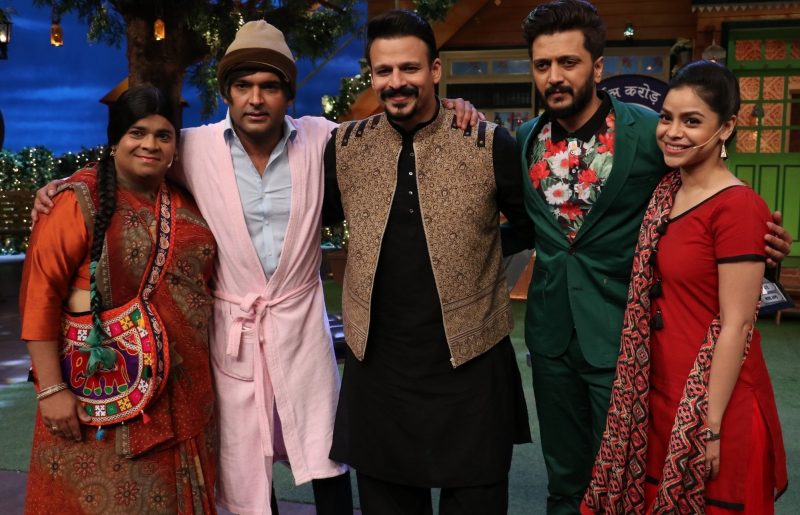The changing ways of film promotion (Column: B Town)
picture you saw was the rule for and logic for promoting Indian films. Illiteracy has always been a problem and the best way to grab attention has always been through a graphic. Nowhere has this been more relevant than with the promotion of a film.
A film registered itself on its prospective audience better with attractive visuals. That is why we had posters, on walls as well as on poles. We had, what was called six-sheeters: they accounted for six standard 30″x40″ wall posters pasted together.
Anybody who studied Commerce as part of college syllabus in those days knew what were the traditional, well entrenched ways of advertising, be it cigarettes (most publicised product in those days) or films.
There was no All India Radio nor Doordarshan. The films were promoted city, town and village wise as and when needed to. There was no national platform to promote any product, let alone films.
The approach to publicising films was standard, simple be it a small film or big. Yet, far more effective than it is today when crores are spent on promotion.
While all the publicity was done at the local level, advertising on the cross country railway routes was the only way this was done nationally. Posters in two main sizes were splashed on the railway stations at all popular routes. This, the covering of the huge network, was a slow process and, hence, started a couple of months before a film was due for release.
The idea in those days was to let a film’s promotion grow slowly through visual exposure as well as word of mouth. A film’s music, which played a very important part in promoting a film as well as help it succeed, was released much in advance. Usually, the music release was treated as an event with media participation with cocktails to follow. These photosets and show cards were displayed on glass windows of cinema halls. And, not surprisingly, film lovers flocked to look them up.
Today, if a superstar is passing on the road, a person may not pause to look at him. But, those were the days when people would stop to gape at posters of an upcoming film (they would be put up overnight. Pictures in print were the best way to communicate as well as convey to prospective film audiences.
The best thing about designing a film’s release publicity, which included trailers and street publicity was that original photographs from the film were used in them. A film’s trailer was made from the footage shot for the film.
There were expert design makers for posters and there were film trailer makers with great reputation. Trailers were of long duration and dealt with all aspects of a film like action, romance, music, drama, emotion and so on with, of course, music being highlighted.
Cinema halls were as keen on promoting the films they were showing as the producer or distributor. The managements put up small-sized banners on cigarette shops, distributed handbills or hired rickshaws and tongas to announce films.
Earlier, a film’s promotion began while it was in the fin stages of production. The makers liked to keep it in the news. There was a trend to take the media on a junket to the film location. The media, the stars and the makers got to interact over a day or two and this resulted in some worthy coverage in publications that mattered.
WhatsApp, Twitter, email messages have now replaced this home delivery of promotion through fliers and loudspeakers. There is YouTube and other mediums besides the dedicated website set up by filmmakers for their films.
Wall posters were another mode of promotion but now the big banner films avoid that. As it were, some cities banned this defacing of city walls long ago. Delhi was the first to impose this ban.
Trailers, which are called promos now, are not always made by the ones who made the film. Some portions are shot especially for this purpose and, often, have nothing to do with the content of the film!
Earlier, film posters and other display publicity were designed manually with the continuity stills shot during the actual shooting of a film and depicted what the film was all about. Today, all designing is done on computers. A designer now may not be able to draw a straight line on paper, but can design anything using imagination and a computer.
What is strange is that, these modern day designers arrange a special photo shoot with stars so that publicity material can be designed from those pictures! So what is different from one film poster to another is only a star’s costume, the rest remains the same. What is worse, these designs don’t convey anything about the film the way earlier era designs did. These designers promote a star instead of the film.
Publicity material in those days were a special attraction. Most cinema halls had a showcase facing the road. When a new film’s photosets (12 in number) were displayed in these windows, curious film lovers crowded around them. Trailers had their own appeal. People made it a point to reach a cinema hall early so that the trailer of a forthcoming film, screened before the main feature, was not missed. Even trailers evoked whistles, cat calls and claps! Something rarely seen now. Photosets have been replaced by what is called Standees! (The craze for watching film trailers carried on to Doordarshan’s “Saptahiki” programme later, which had a huge following.)
Standee is a vinyl sunshine board cut-out of the film’s star, usually male star. Such a standee does not convey anything except who is starring in the film! It stands unobtrusively in a cinema lobby corner.
For a time, film units did road shows, taking major actors of a film to other metros. Don’t know what the logic was since the media by then had all-India reach. Print media had multiple editions, and TV channels showed the same telecast all over! The reason why these roadshows took place was because a resourceful PR person found sponsors to foot airfares and hotel stay. The sponsor’s favour was returned with star presence at their business venue.
The latest way to promote a film is through popular TV shows like “Tarak Mehta Ka Ooltah Chashma”, “The Kapil Sharma Show” and such. The problem still is that nothing comes across about the essence of the film! The stars end up being promoted, not their films.
The fact remains that, in the ultimate analysis, a film promotes itself according to its own merit and pre-release promotion amounts to nought once a film hits the screens. Many films from the past and recent films like “Uri: The Surgical Strike”, “Raazi”, “Badla”, “Gully Boy” and such have proved it.
@The Box Office
*There were no new Hindi films released last week. The solo release, the Hollywood franchise, “Avengers: Endgame”, carried on the glorious box office run started by its predecessors. The film collected a whopping Rs 260 crore in its first week.
*”Kalank” could add just about Rs 6 crore in its second week to take its two week tally to Rs 77.5 crore.
*”Tashkent Files” remains steady finding discerning viewers in its third week as well. The film has managed to pull together Rs 11.5 crore in three weeks.
(Vinod Mirani is a veteran film writer and box office analyst)
–IANS
mirani/am/ksk
Disclaimer: Validity of the above story is for 7 Days from original date of publishing. Source: AFP.


